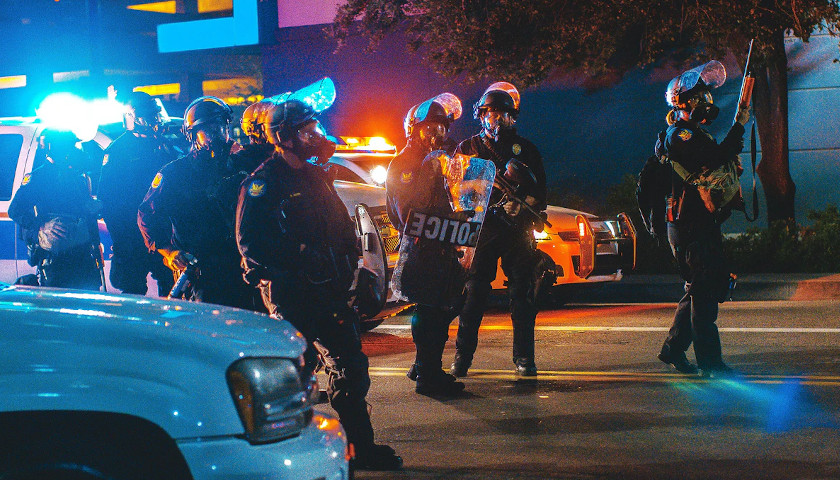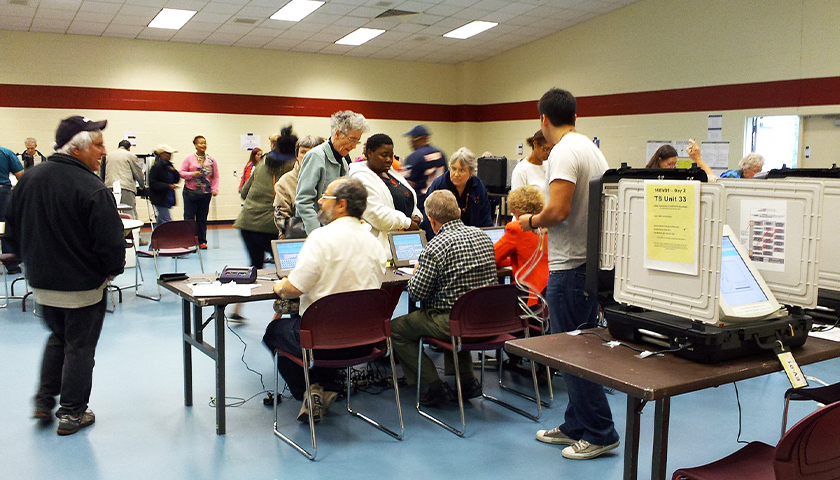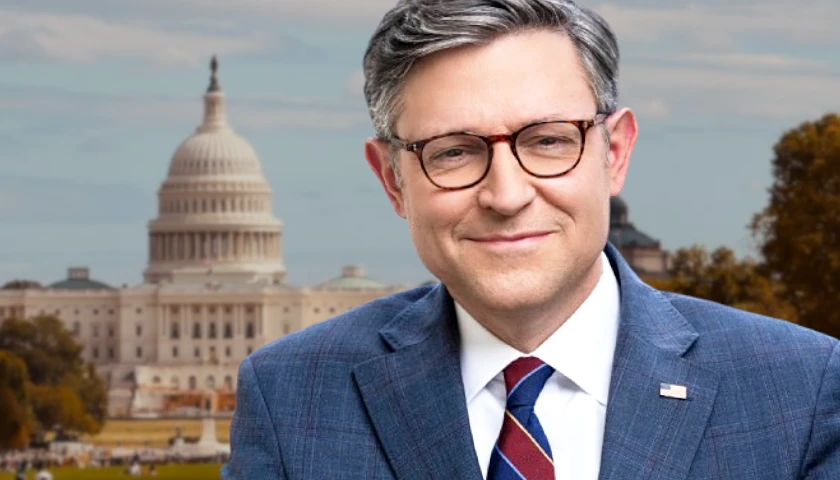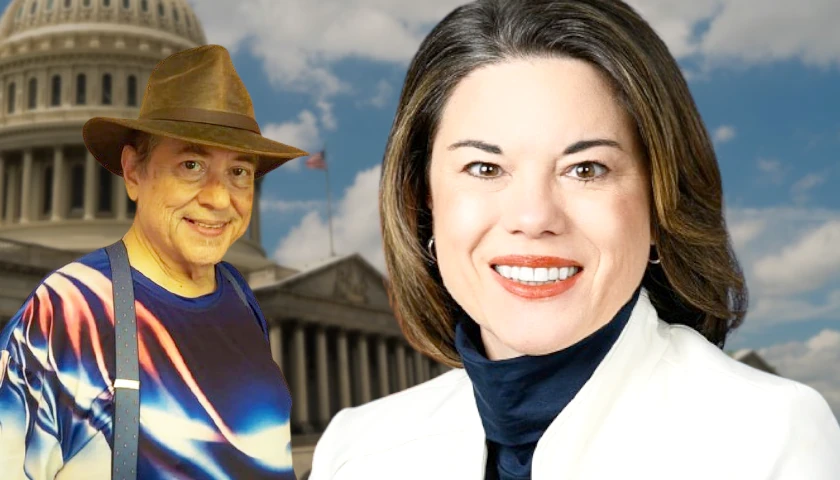by Jason Johnson
The House of Representatives passed the “George Floyd Justice in Policing Act of 2021” this week, the bill’s proponents rightly decry pernicious stereotyping and generalizing based on race.
Yet many of those who rightly condemn such dangerous biases, and the lies they are built upon, make misleading claims of their own to advance another reckless bigotry — anti-police bias.
To make the case for their version of police reform, the bill’s advocates are misleading Americans about the over 800,000 law enforcement officers in the United States and their often dangerous work.
Upon the re-introduction of the Democrats’ policing reform bill in late February, Speaker Nancy Pelosi said, “the epidemic of police brutality continues – with more police killings occurring last year than in the year before, and with communities of color and vulnerable groups disproportionately bearing the brunt of this cruelty.”
The ACLU even titled a report “The Other Epidemic: Fatal Police Shootings in the Time of Covid-19.” In 2019, Sen. Bernie Sanders warned a questioner to respect the police “so you don’t get shot in the back of the head.” And “Squad” member, Rep. Ayanna Pressley tweeted, “police brutality is the 6th leading cause of death for young Black men.”
Others frequently malign law enforcement as “systematically” racist, brutal, and cruel, and suggest the trend is getting worse.
That none of these statements are fair, true, or wise seems irrelevant to those who are ideologically hostile to the police. And such misinformation is taking a toll on public perception.
A 2020 AP-NORC poll showed that fully 48% of the public believes police violence against the public is an “extremely or very serious problem” — up from 32% in 2015.
That shift is particularly dramatic among Democrats and left-wing voters, whose leaders peddle these claims about police. The result is that, according to a February 2021 survey by Skeptic Magazine, about half of liberal or very liberal voters believe 1,000 or more “unarmed black men” are killed by police annually. The true figure is less than 2% of that.
But such myths warp the public perceptions across the ideological spectrum — with conservatives and moderates both believing that 40% of police killings are of Black Americans. (Liberals believe it to be almost 60%.) In fact, Black people represent less than 24% of fatal law enforcement shootings.
The reality is that police use of force is rare and getting rarer. Over 99.9% of all police calls are resolved peacefully, with no use of force whatsoever. Ninety-five percent of police officers will go their entire (often decades long) career without discharging their weapon at another person at all.
The largest police force in the U.S., the NYPD, has seen police shootings decline by 90% in the past few decades. In 1971, NYPD officers fired their guns 810 times, killing 93 suspects but in 2019, New York’s Finest discharged their weapons 57 times, killing 11 individuals.
Simply put, cops aren’t wantonly killing Americans of any race. Over 75% of those killed by police wielded a gun or a knife, while most of the rest possessed other weapons. More than twice as many whites were killed than Blacks. And research shows that white officers shoot Black suspects at lower rates than non-white officers.
Police shootings are not the 6th leading cause of death for young Black men (44 and under) according to the CDC. Diabetes, heart disease, accidents, suicide, cancers, and strokes all kill at higher rates. In fact, officer involved deaths represent only 1% of all young African-American deaths – nearly the precisely same share as for young white men. On the other hand, homicide is by far the leading cause of mortality for young black men aged 15-34, comprising 40% of all deaths.
And Americans, especially the Black community, don’t want to defund the police. Actually, they often want more police to protect them from violence and crime. A 2020 Gallup survey showed that 92% of inner-city Black residents want more or the same amount of police presence in their neighborhoods, not less. Meanwhile, 72% of Black Americans are satisfied with their local police, compared to 71% of all Americans.
Americans overwhelmingly oppose “defunding the police” with 73% of those polled wanting funding maintained (42%) or increased (31%), with 55% of Black Americans wishing to see funding maintained or increased.
And this support is for good reason. Police reduce crime and their absence gives criminals space to wreak havoc. In 2020 homicides jumped 21% and aggravated assaults rose 8.3% as elected officials ordered police to “stand down.” In New York City, arrests plummeted 55% over the summer while murder increased 45%. Similarly, de-policing in Chicago (2016) and Baltimore (2015) saw arrests fall by a quarter while homicide spiked by 59% (Chicago) and 55% (Baltimore) in the following months.
More and better policing also pays dividends. One study calculated that for every $1 a city spent on police, municipal revenues and economic growth rose by $1.63. Safer communities attract investment, grow jobs, and encourage taxpayers to move in and stay.
The brave men and women of law enforcement — 59 of whom were killed feloniously on duty in 2020 — selflessly protect and serve. We should support, empower, and professionalize — through greater training and accountability — American law enforcement officers, not slander them.
It’s time to stop the falsehoods and fear-mongering. The public deserves the truth on policing.
– – –
Jason Johnson, a former deputy commissioner of the Baltimore Police Department, is president of the Law Enforcement Legal Defense Fund.






Preaching to the choir, here. The true culprits regarding the misinformation regarding police killings are the ones choosing the Narrative to give the public.
I would hope that eventually people will see the disconnect between reality and the North Korean style “journalism” being perpetuated by the “legacy media.”
I’ve been meaning to ask people overseas what it’s like to live in a country where the government owns the news media and not the other way around.